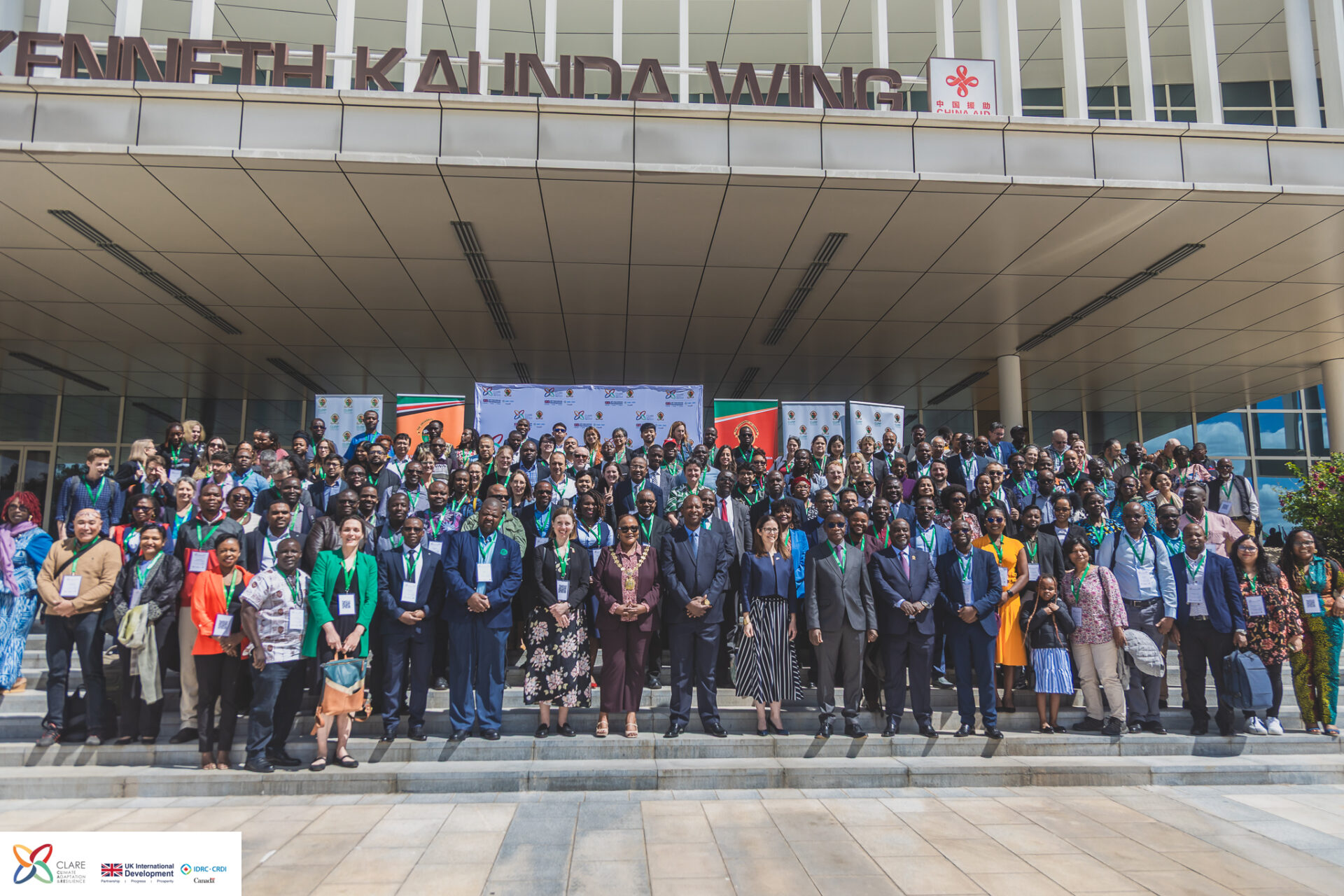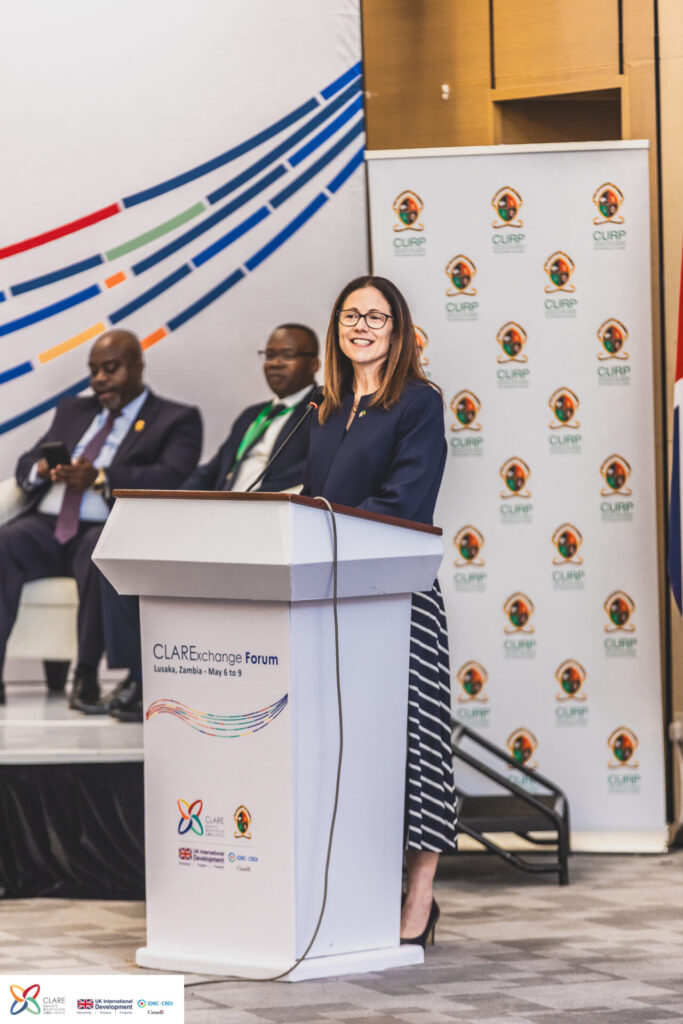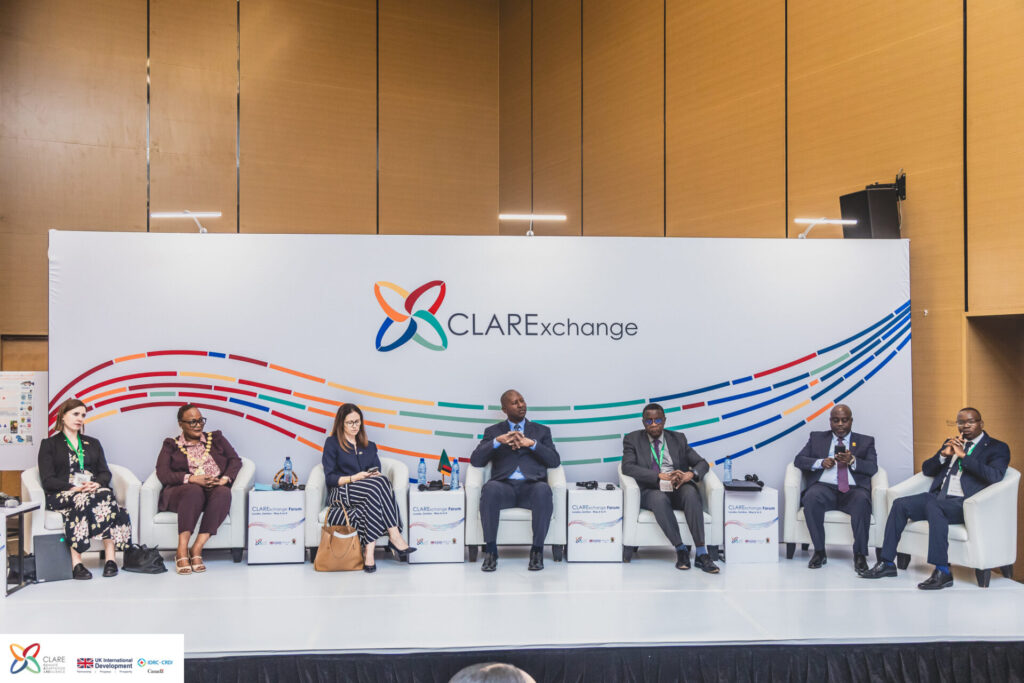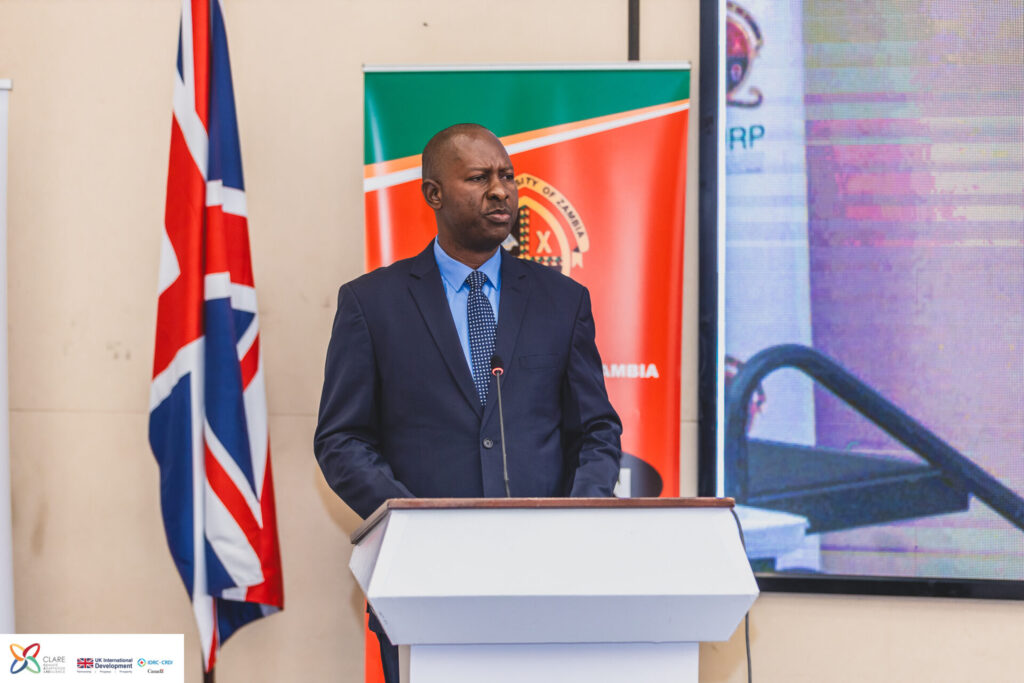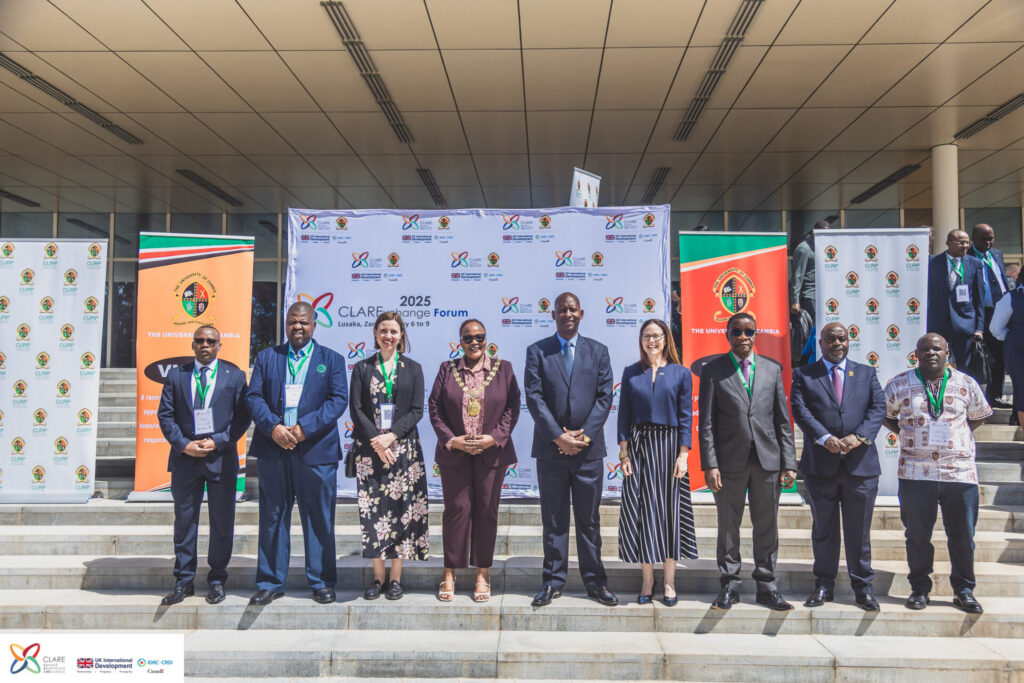Highlights from CLARExchange 2025: the first in-person gathering of the CLARE global community
/
From May 6 to 9, 2025 more than 180 members of the CLARE global community came together for their first in-person gathering at the CLARExchange forum in Lusaka, Zambia. CLARExchange was co-hosted by the UK’s Foreign, Commonwealth and Development Office and Canada’s International Development Research Centre together with the University of Zambia.
The theme of CLARExchange 2025 was “Co-creating CLARE Narratives”, allowing a focus on advancing collaboration on key cross-cutting issues of CLARE work. The forum was a hub of inclusivity and openness, providing a dynamic space for peer learning, collaboration, and knowledge exchange among diverse individuals and institutions involved in CLARE-supported projects across Africa and Asia-Pacific. Prior to the forum, a series of three webinars were held to prepare participants and engage community members who could not join the in-person event; each learning exchange webinar was attended by more than 100 participants.
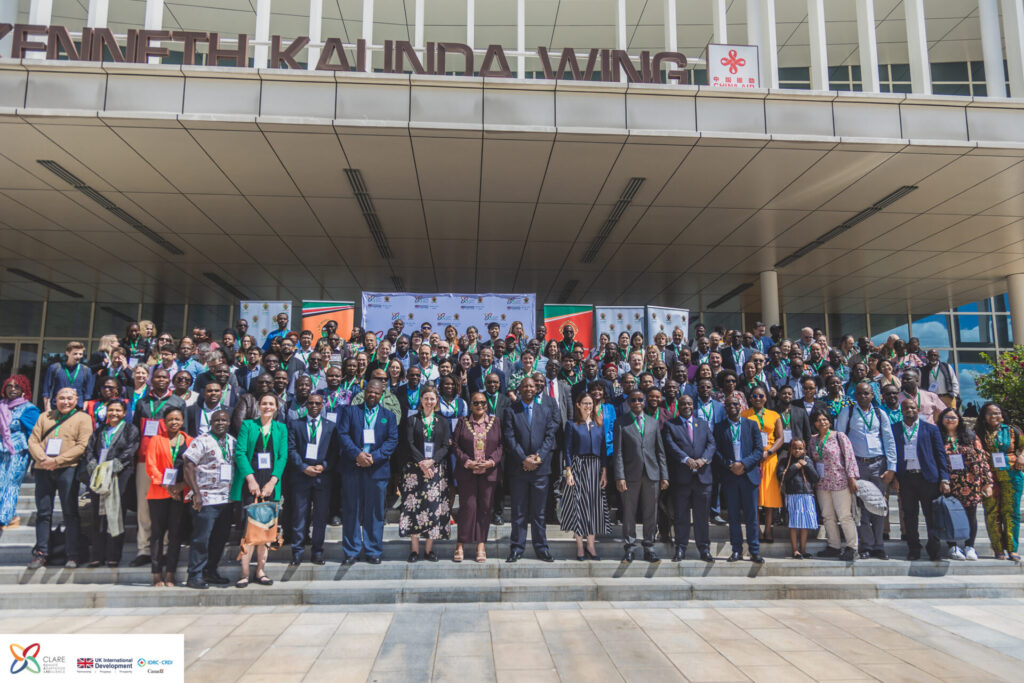
High-level Opening
CLARExchange 2025 kicked off with a high-level opening, attended by distinguished speakers who spoke to the urgent need to bring together science, innovation, and practice to help the most vulnerable adapt to climate change. Participants heard remarks from Hon. Minister for Green Economy and Environment, Mr. Mike Elton Mposha on behalf of His Excellency the President of the Republic of Zambia, Mr. Hakainde Hichilema; British High Commissioner to Zambia, Ms. Rebecca Terzeon; Mayor of the City of Lusaka, Her Worship Chilando Chitangala; Head of Climate Science and Adaptation Research at FCDO’s Research and Evidence Directorate, Ms. Rosalind West; University of Zambia Vice Chancellor, Prof. Mundia Muya; University of Zambia Deputy Vice Chancellor – Research and Innovation, Prof. Trywell Kalusopa; and University of Zambia Dean of the School of Natural and Applied Sciences, Dr. Orleans Mfune. The high-level opening also featured Zambian poet and climate activist Enala Ngala, whose powerful voice demonstrated how the arts can inspire climate action.
“The theme for this year’s CLARE conference, which is ‘Co-Creating Climate and Adaptation Resilience Narratives’, resonates deeply with me, personally. It calls upon us to share our stories, our successes, and our failures and our future imaginations and action-oriented climate intentions. We must learn from one another and build upon the wealth of knowledge that exists within our communities, from our researchers at home, from Africa, the Global South and from across the world. Let us remember that solutions can often be found in the most unexpected places, Zambia and Africa have a lot to share.” – Hon. Minister for Green Economy and Environment, Mr. Mike Elton Mposha on behalf of His Excellency the President of the Republic of Zambia
“Thanks to the University of Zambia’s leadership, Lusaka hosted participants from 35 countries at the CLARExchange 2025 conference, endorsed by Minister of Green Economy and Environment, Honourable Mike Mposha, on behalf of Mr. President Hichilema. The Climate Adaptation and Resilience programme is the UK’s flagship research and innovation initiative on climate adaptation, funded by the UK together with Canada’s International Development Research Centre. The programme delivers real impact – in Zambia for example it has supported local communities to reduce flooding risks. Partnerships lie at the heart of its success – the conference brought together experts and climate research institutions, including the UK’s MET office, the Grantham Research Institute at the London School of Economics, and the University of Zambia.” – British High Commissioner to Zambia, Ms. Rebecca Terzeon
Daily highlights
Day 1
Following the high-level opening on Day 1, participants delved into the week’s busy agenda. They started off by meeting colleagues and exchanging insights on questions related to CLARE’s work and the overall field of climate adaptation. Later in the day, participants joined sessions on “Co-creating impact through CLARE’s ways of working”, which focused on digging into CLARE’s common approaches: capacity strengthening, gender equality and inclusion, monitoring and evaluation, and research for impact.
Day 2
On Day 2 of CLARExchange, participants joined a series of dynamic sessions where they contributed to work on common issues and questions related to socially inclusive climate adaptation and resilience that they are addressing across multiple CLARE-supported projects. These included a session on linking timescales to help avoid unintended consequences of climate interventions, how diverse and differential lived experiences of extreme events influence responses and subsequent climate adaptation, and the relevance of the climate-resilient development (CRD) concept for CLARE. Capacity strengthening-focused CLARE projects also discussed commonalities and opportunities for collaboration in their work to strengthen capacities of researchers and research users to do and use climate adaptation research.
In the afternoon, participants practiced co-creation through an ‘open space’ methodology, whereby members of the CLARE community brought forth emerging topics for cross-project collaboration, such as “the role of nature in climate vulnerability and adaptation”, “resilience in urban informal settlements”, and “rethinking masculinity”. These emerging topics stimulated innovative and insightful conversations amongst peers, addressing key issues in the adaptation space.
Day 3
Day 3 of CLARExchange focused on bringing the community together to exchange understanding and learnings from the rest of the forum, as well as to share CLARE’s collective progress so far. Participants explored topics such as what transformational change means to CLARE and how we are pursuing it, providing inputs into a first phase of CLARE evaluation, and next steps towards conveying collaborative knowledge and learning from CLARE.
The day ended on an inspiring note with a cultural evening that showcased the cultural diversity of Zambia and the whole CLARE community, featuring local dancing, traditional drumming, music, and food.
Day 4
On the final day of CLARExchange, participants visited the Kanyama informal settlement in Lusaka, where they explored firsthand how CLARE research projects are partnering with local communities to address urgent challenges such as flooding, informality, livelihood insecurity, and inadequate infrastructure.
The site visit was organized by the University of Zambia in collaboration with Slum Dwellers International and the Lusaka City Council. UNZA is implementing two CLARE projects, MECHANICS and Tuwe Pamoja, at the settlement.
Despite the challenges faced in these communities, it was inspiring to witness some local adaptation and resilience practices at the Kanyama Green Innovation Centre that showcased a local model for building adaptive capacity and promoting green entrepreneurship. The centre has developed community-driven initiatives such as recycling innovations, green infrastructure, environmental education and empowerment programmes for women and youth. The centre demonstrated how localized innovation, when supported through capacity building and partnerships, can serve as a platform for climate-smart urban development. These nature-based solutions are undertaken on a limited space that is maximized, with high value produce and outcomes that can be replicated in informal households to improve livelihood and nutrition.
The rationale behind the site visit was to offer critical insight into the lived realities behind CLARE research, reinforcing the importance of grounded, community-led adaptation in climate-vulnerable urban spaces. The relationship between UNZA and the Kanyama settlement supports efforts to enhance adaptation and resilience building within Lusaka’s informal settlements, drawing on principles of collaboration and knowledge sharing, local realities and scientific research, inclusive engagement, and action and collaboration.
The field visit served as a fitting conclusion to CLARExchange — reinforcing the urgency, complexity, and opportunity inherent in climate adaptation, and grounding theoretical insights in lived experience. It left participants with a deepened appreciation of the human dimension of resilience and a renewed commitment to fostering inclusive, locally anchored solutions.
Voices of the CLARE community
Hear from members of the CLARE community about what the CLARExchange forum meant to them, and how they understand its importance for the CLARE Programme as a whole.
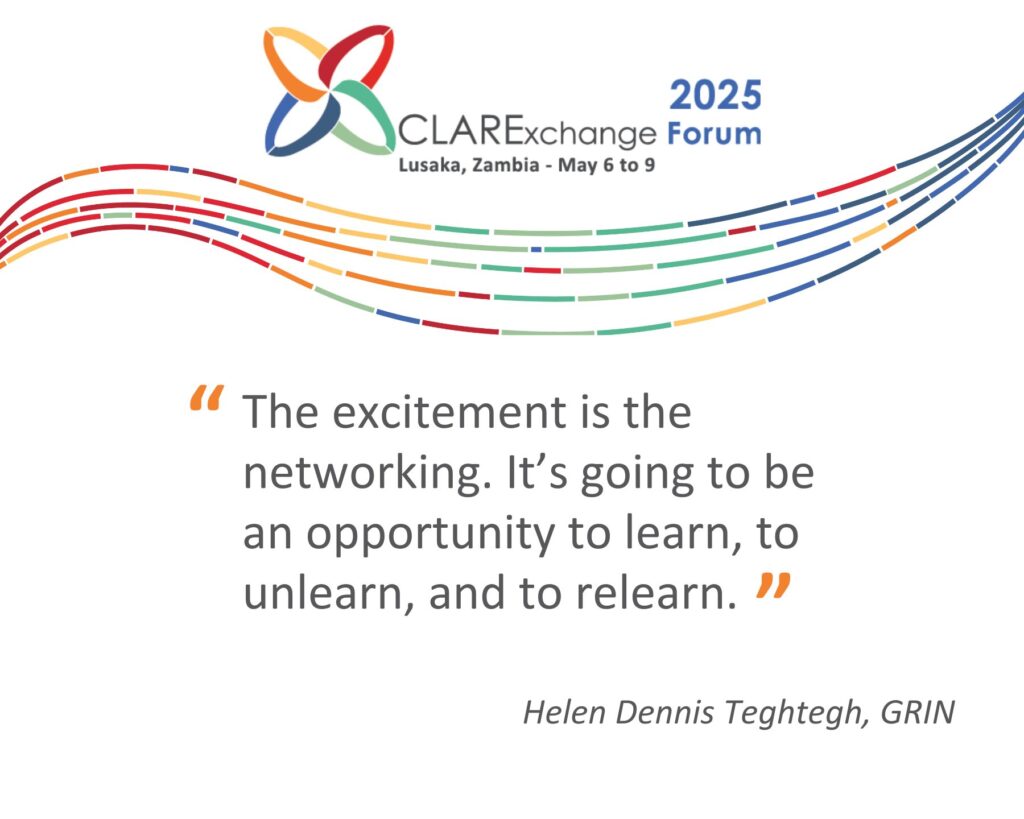
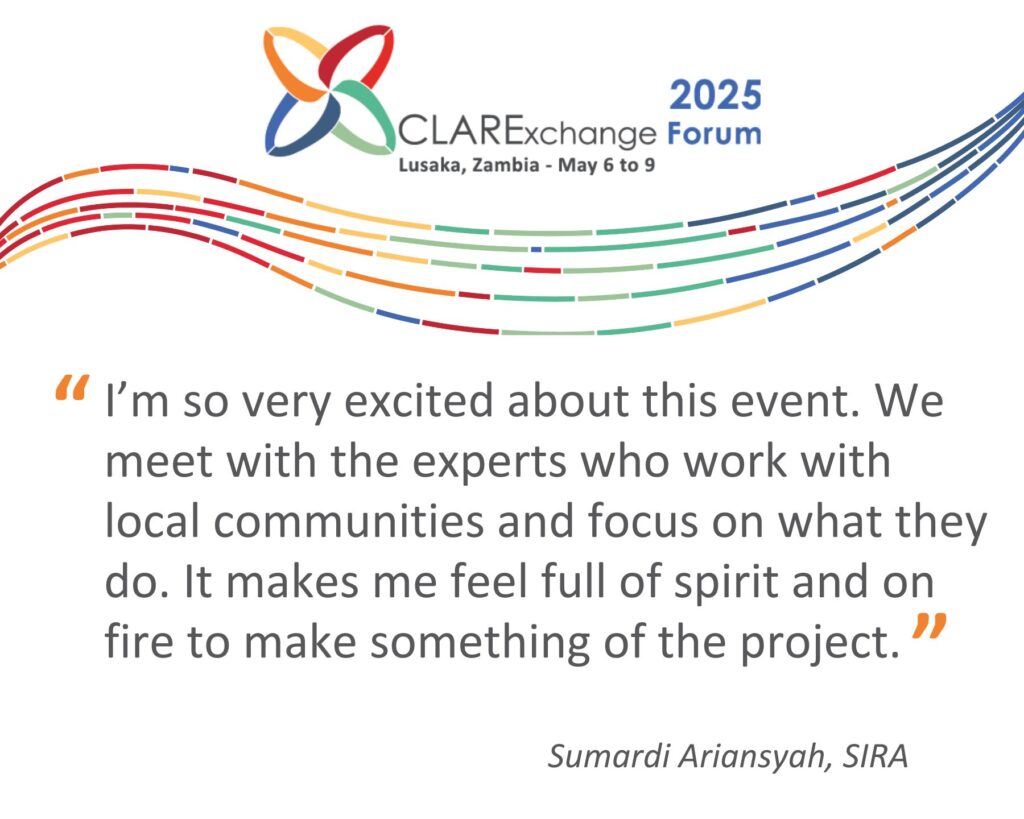
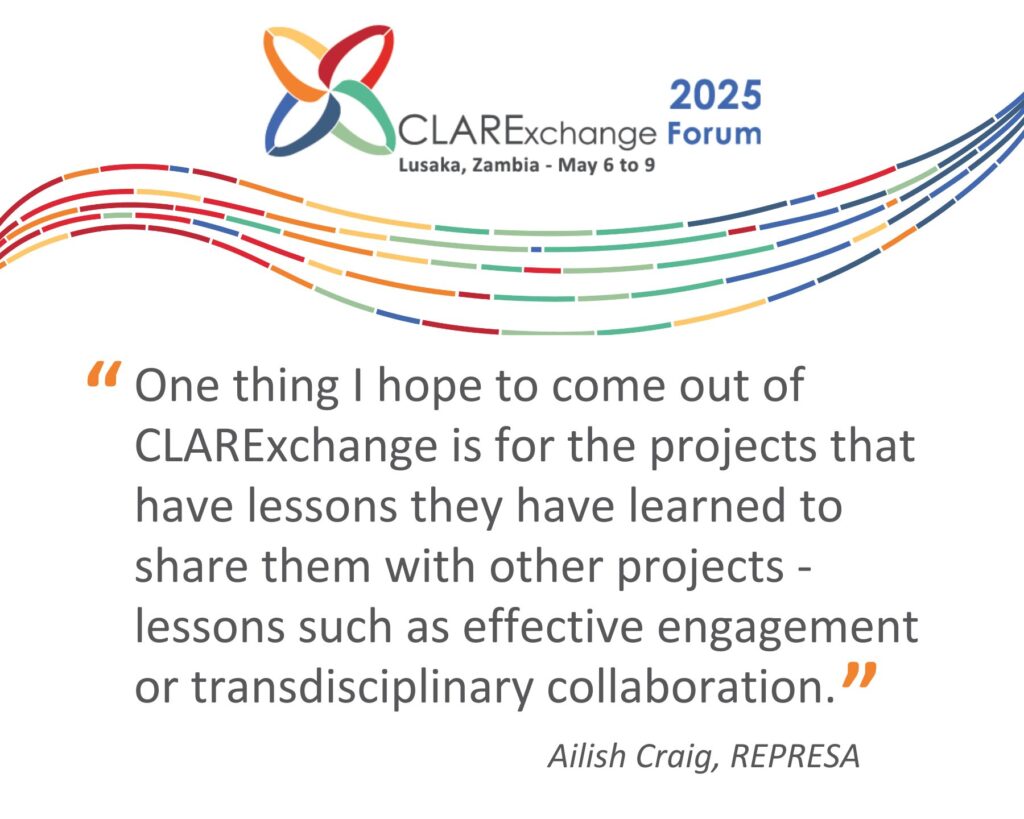
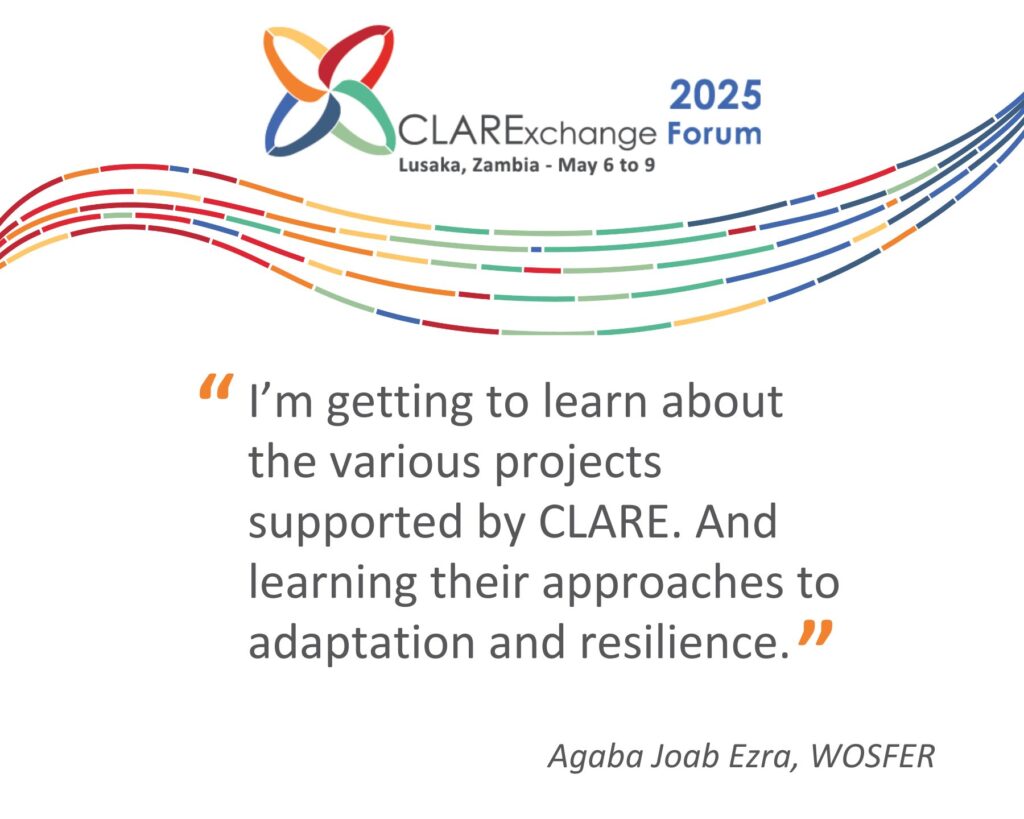
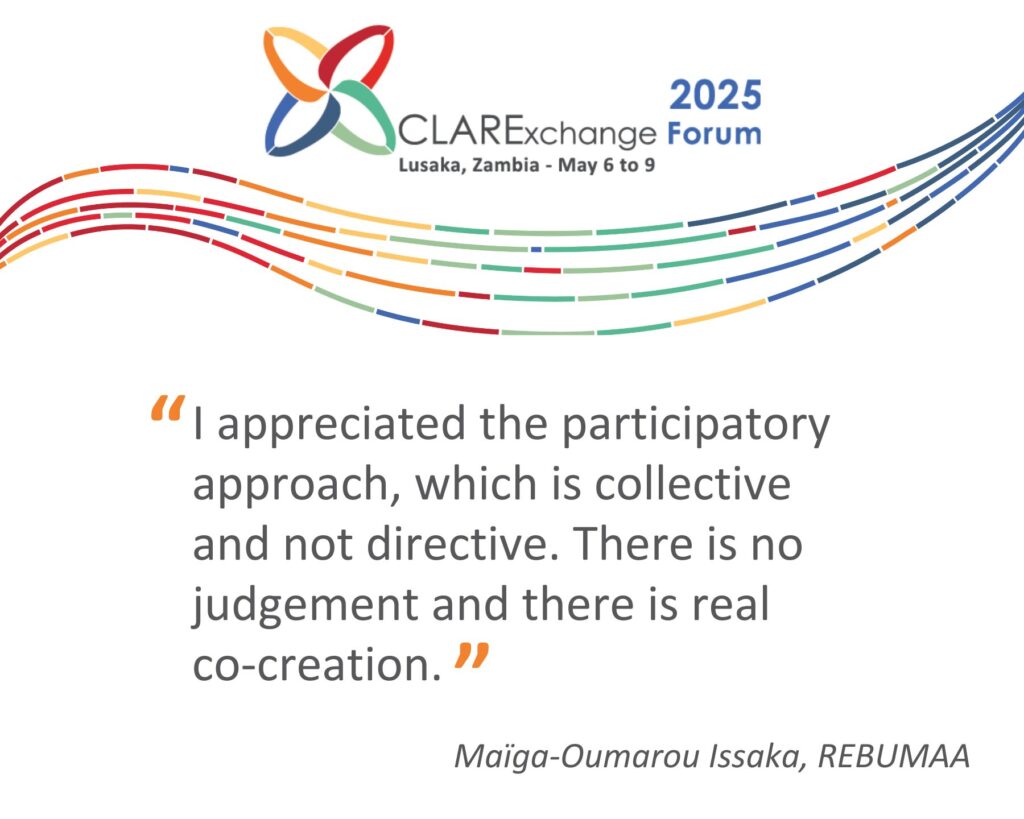
While the first in-person CLARExchange has ended, CLARE’s momentum continues. CLARE projects are actively building evidence and solutions to foster effective and inclusive climate resilience in the Global South.


